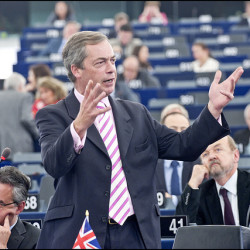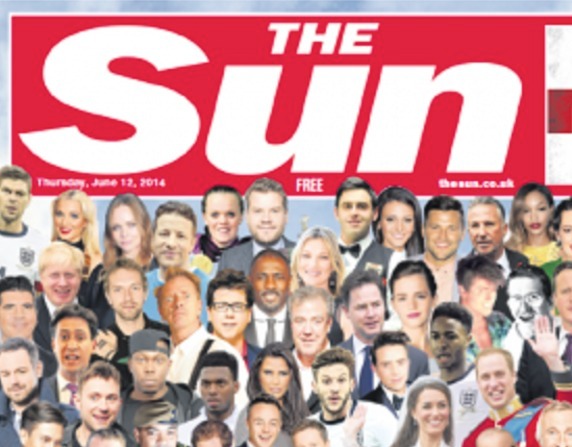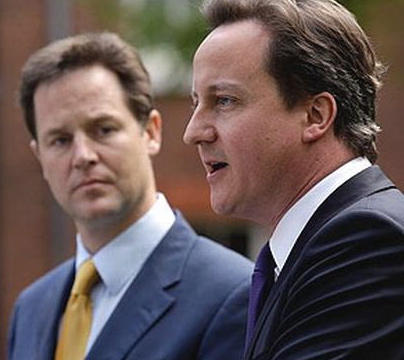
Brexit, voting, and political turbulence
Cross-posted from the Princeton University Press blog. The authors of Political Turbulence discuss how the explosive rise, non-normal distribution and lack of organization that characterizes contemporary politics as a chaotic system, can explain why many political mobilizations of our times seem to come from nowhere. On 23rd June 2016, a majority of the British public voted in a referendum on whether to leave the European Union. The Leave or so-called #Brexit option was victorious, with a margin of 52 per cent to 48 per cent across the country, although Scotland, Northern Ireland, London and some towns voted to remain. The result was a shock to both leave and remain supporters alike. US readers might note that when the polls closed, the odds on futures markets of Brexit (15 per cent) …

Populism in an FPTP system: UKIP may still succeed if they play the waiting game
Coverage and analyses of the recent British general election of 7 May have focused predominantly on the surprise victory of the Conservatives, the poor showing of Labour, and the close to clean sweep of the Scottish National Party (SNP). The performance of the UK Independence Party (UKIP), meanwhile, was generally perceived to be disappointing for the party of Nigel Farage. Indeed, it has been argued that, despite the high expectations of the past years, UKIP fell well short of causing a ‘Purple Revolution’. At the end of 2014 the party were trending at around 20 per cent in several opinion polls with some excitable elements in the media claiming the party could win as many as 40 seats in the general election. Given this narrative was just six months before the election, their final result of just one seat compounded the apparent failure of Farage’s ‘People’s Army’ to mobilise.

Where is British conservatism today: UKIP, conservative, libertarian or something else?
As was said in the opening paragraph of this series, a well-rehearsed interpretation of UKIP is that they are a grouping to the right of the current Conservative party, dissatisfied with the old party’s failure to stand up to Europe and its perceived leftwards shift under Cameron. In this view, UKIP are, to quote a recent Labour party campaign, “more Tory than the Tories”. There is certainly something to be said for this claim. Leading figures in the party, as well as party activists, are former members of the Conservative party, not least Nigel Farage himself. While we await their 2015 election manifesto, a number of policies that have been proposed recently also seem to point in the direction of an ultra-Tory agenda, such as plans to abolish inheritance tax. But UKIP’s own constitution brands it as a “democratic, libertarian party”, while its most famous recent acquisition, Douglas Carswell, describes himself on his own twitter account as a “free trade Gladstonian liberal”. What are we to make then of UKIP’s ideology and identity?
Firstly, it is only right to point out that UKIP, like almost all political parties, represents a coalition of different views. In particular, it displays a similar kind of mix of conservatism, liberalism and libertarianism that we find in the Conservative party. It is probably fair to say that libertarianism is a term less familiar to British political culture than to that of the United States, but British conservatives (including members of the Conservative party) often like to claim the mantle of liberalism and individual liberty, usually relating these ideas to the promotion of free enterprise, reduced state intervention in the economy and individual responsibility. That Mrs. Thatcher was an ardent admirer of Gladstone is no secret, and Simon Heffer has gone as far as to argue that she is best understood as a latter-day champion of Gladstonian liberalism, rejecting many of the values that had come to be associated with Toryism in the nineteenth and twentieth centuries, such as paternalism and protectionism. It is worth noting that Gladstone himself began life as a Tory.
But once again, it might be argued that this merely attempts to reduce modern conservatism—encompassing UKIP—to free-market liberalism, when in fact it can be clearly distinguished from liberalism in other crucial respects. First of all, patriotism and nationhood are clearly central to both the contemporary Tory party and to UKIP. While both express outward-looking views on free trade, they also wrap themselves unashamedly in the flag and bang the drum for British values and virtues wherever possible. On the issue of mass immigration, while the Tory party are more divided, UKIP are, of course, vociferously opposed, pointing to the need to withdraw from the EU as the only way to guarantee full control over migrant entry into the country. Compare this to the liberal internationalism of Nick Clegg, an economic liberal in key respects, but alone amongst the three main party leaders in his outspoken support for the EU. Other UKIP policies are also suggestive of an ultra-conservative agenda rather than a liberal one, including the promotion of grammar schools and tougher sentences for prisoners. Then there are those amongst the party’s rank-and-file who occasionally crop up to embarrass the leadership, like councillor David Silvester, who, earlier this year, claimed that recent flooding had been the result of the government’s legalisation of gay marriage. While there is no suggestion that this particular view is widespread within the party, it nonetheless hints at an undercurrent of extreme, evangelical social conservatism that feels quite alien in secular Britain, but is perhaps not quite as distant as we like to think.

Nasty piece of work: The Sun’s nationalism is doing England great harm
Other than war, few things fire nationalist sentiments in a society quite like sport. On June 27 2010, as the English football team were being thrashed by Germany in the World Cup in South Africa, England’s fans chanted: “Two world wars and one world cup … two world wars and one world cup!”
As pacified contests, sports generate all the emotions of national attachment in a manner that is generally benign and fun. Yet major sporting events also offer opportunities for those seeking to mobilise national identity in a more aggressive way – as The Sun newspaper recently reminded us with its free “Historic Edition”, dispatched to 22m homes in Britain last month.
Make no mistakes about the official prompt of this paper being the start of the World Cup – this is quite visibly a deliberate political publication, the latest effort by the UK’s highest circulation newspaper to shove popular understandings of national identity in its preferred direction. The effort is hardly covert, with the front cover emblazoned with the words “THIS IS OUR ENGLAND” superimposed over the faces of 117 individuals the Sun deems personal embodiments of “the essence of England today”.
The paper’s contents offered an unusually sustained illustration of English nationalism as interpreted by Britain’s tabloids. It’s not a pretty picture. After a superficially worthy iteration of that now trite sentiment of British politicians, public intellectuals and commentators that national pride needs to be “reclaimed” from the “small-minded” and the “racist”, the following 21 pages provided a tour de force in national chest-thumping that could barely do more to put its small-mindedness and contempt for the rest of the world front and centre.

Predicting the Eastleigh by-election
Tomorrow the voters of Eastleigh go to the polls to select a new MP following the resignation of Chris Huhne. The eyes of observers of British politics are keenly trained on the outcome of the by-election because it might give us some early clues to some serious questions about the next election: How are voters going to respond when faced with two incumbent government parties? Is Liberal Democrat support going to evaporate? What is the effect of UKIP going to be?

What Next for Britain’s Pro-Europeans?
Having, until now, benefited from the tacit support of the existing political elite, Britain’s pro-European lobby has had less incentive to create a formal political movement. However, if the anti-European jungle drums continue to beat louder, it seems only a matter of time before the pro-Europeans organise, perhaps in advance of the June 2014 European elections.









